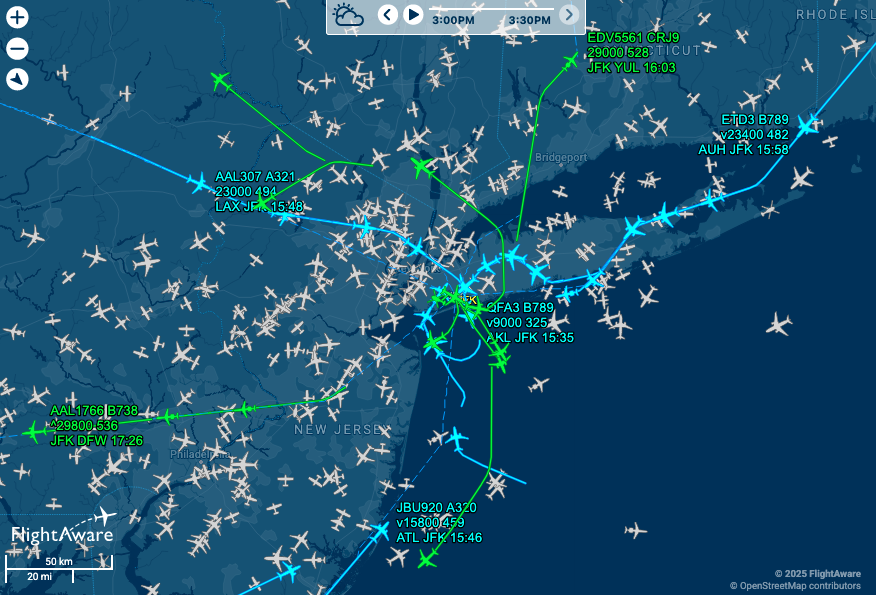Government Shutdown Exposes Deep Cracks in U.S. Aviation System

The ongoing U.S. government shutdown is once again exposing the fragility of the nation’s aviation system, as staffing shortages and outdated infrastructure collide with a prolonged funding freeze. Less than a week into the shutdown, signs of strain have already begun to emerge — from delayed flights and closed control towers to growing fatigue among air traffic controllers and security screeners working without pay.
On October 6, a stark announcement came from the air traffic control tower at Hollywood Burbank Airport near Los Angeles: “The tower is closed due to staffing.” For nearly six hours, pilots had to coordinate takeoffs and landings themselves, resulting in flight delays averaging two and a half hours. It was one of the first visible signs that the shutdown, now entering its second week, is taking a measurable toll on aviation operations nationwide.
The Federal Aviation Administration (FAA) has confirmed air traffic controller shortages in major cities including Boston, Philadelphia, Atlanta, and Houston. The ripple effects are being felt at airports in Dallas, Nashville, Newark, and beyond. Meanwhile, the Transportation Security Administration (TSA) is reporting an increase in unscheduled absences among security screeners, raising concerns about longer wait times at checkpoints as workers miss paychecks.
Experts warn that these disruptions highlight deeper, systemic problems — chronic understaffing, outdated technology, and insufficient resilience in the aviation system. “It’s like having a drought the year after you had a drought,” said Greg Raiff, CEO of Elevate Aviation Group, noting that the shutdown is compounding problems that were already reaching critical levels.
The U.S. faced a similar crisis in 2019 during the longest government shutdown in history, which lasted 35 days under President Trump. Back then, overworked air traffic controllers sued the government over missed pay, TSA agents called out sick en masse, and Miami International Airport was forced to close an entire terminal due to staff shortages. Despite these warnings, experts say little has changed since.
Aviation attorney Ricardo Martinez-Cid, who represents crash victims, noted that the system is now even more vulnerable. “Here we are so many years later, and the problems have not been addressed. We’re in a worse position than before, despite having had the chance to fix it,” he said.
This year has already underscored the risks. A mid-air collision over the Potomac River in January killed 67 people, while radar outages and equipment failures across the U.S. disrupted thousands of flights. The FAA has acknowledged a shortage of roughly 3,000 air traffic controllers — its lowest staffing level in decades — with outdated systems compounding operational risks.
The shutdown has also paused progress on two major FAA initiatives: the hiring of 2,000 new controllers and a $12.5 billion modernization program for its technology infrastructure. With both now delayed, officials fear that even once funding resumes, the backlog will set the agency further behind.
Union leaders are sounding the alarm. Nick Daniels, president of the National Air Traffic Controllers Association, called the situation “critical,” warning that newer controllers may leave the profession altogether. TSA union officials have also warned that prolonged unpaid work could drive more screeners to quit, worsening staffing gaps that were only beginning to recover.
Lawmakers have long discussed insulating the FAA from political gridlock by ensuring its funding continues during shutdowns, but no lasting solution has been enacted. Industry groups say that must change. “This vicious budgetary cycle of stops and starts has simply got to stop,” former Airlines for America CEO Nick Calio said in testimony after the 2019 shutdown.
Seven years later, the warnings ring louder than ever. As flights delay, towers close, and workers struggle without pay, aviation experts agree: the U.S. system is showing its cracks — and this shutdown could be the wake-up call Washington can no longer afford to ignore.
Related News: https://airguide.info/category/air-travel-business/travel-health-security/
Sources: AirGuide Business airguide.info, bing.com, abcnews.go.com
